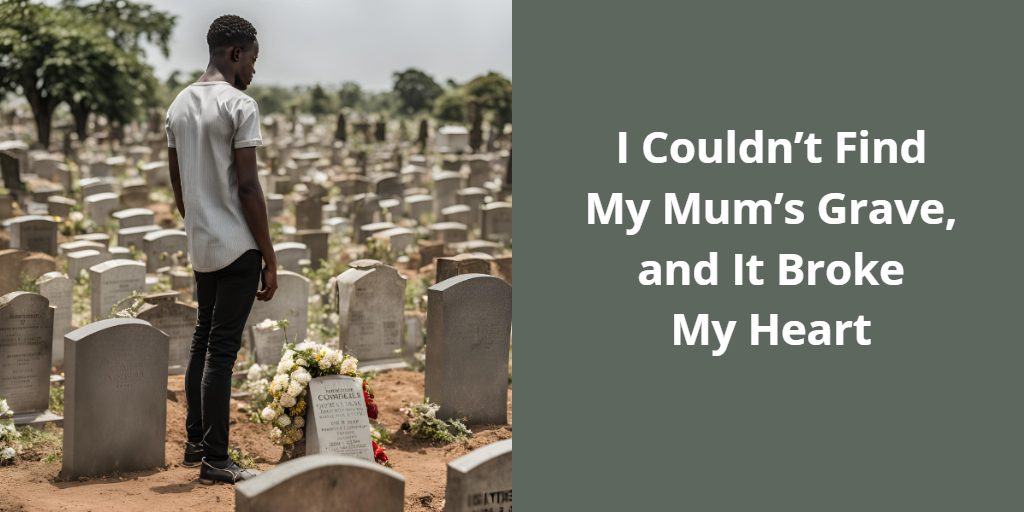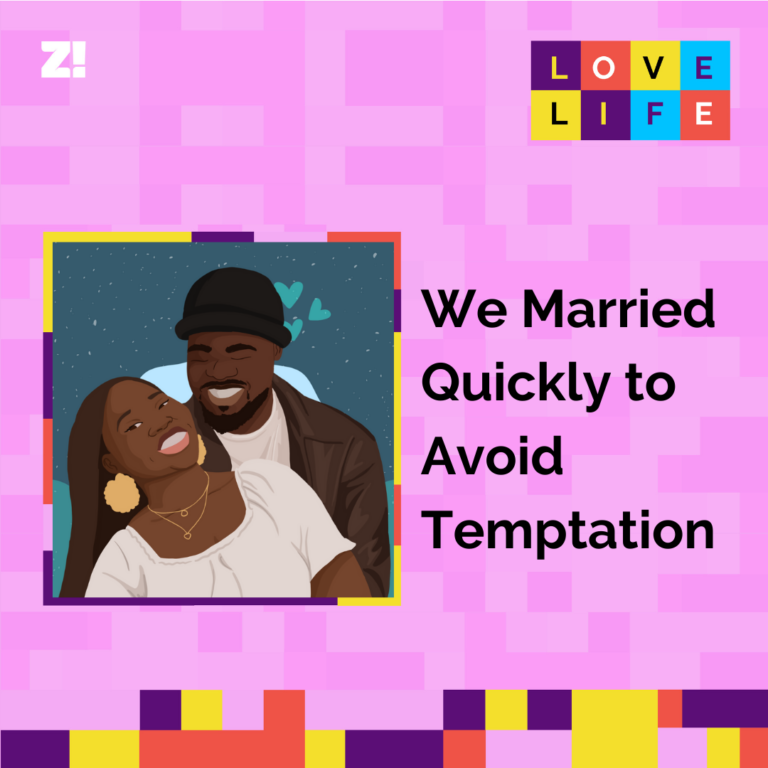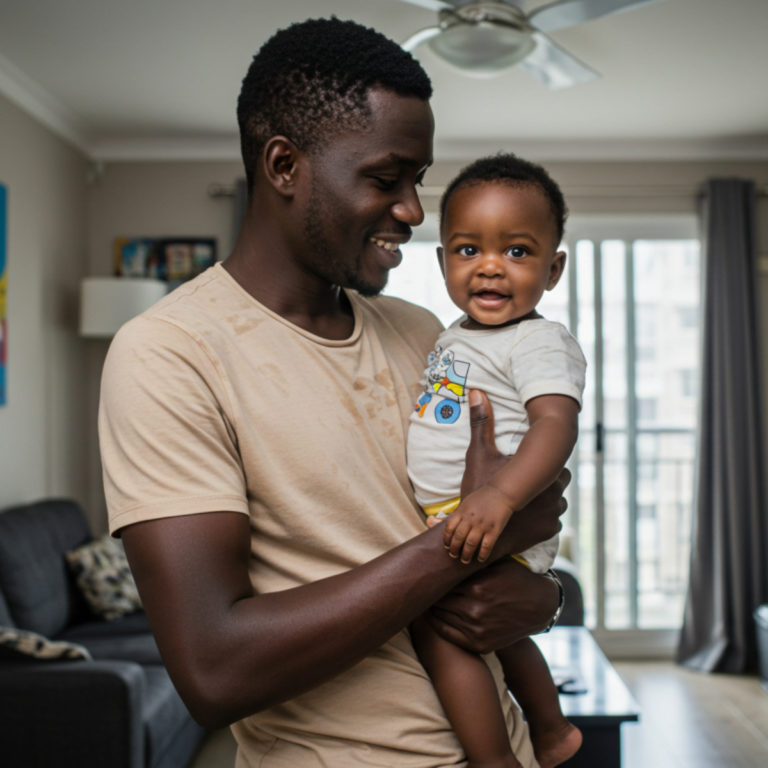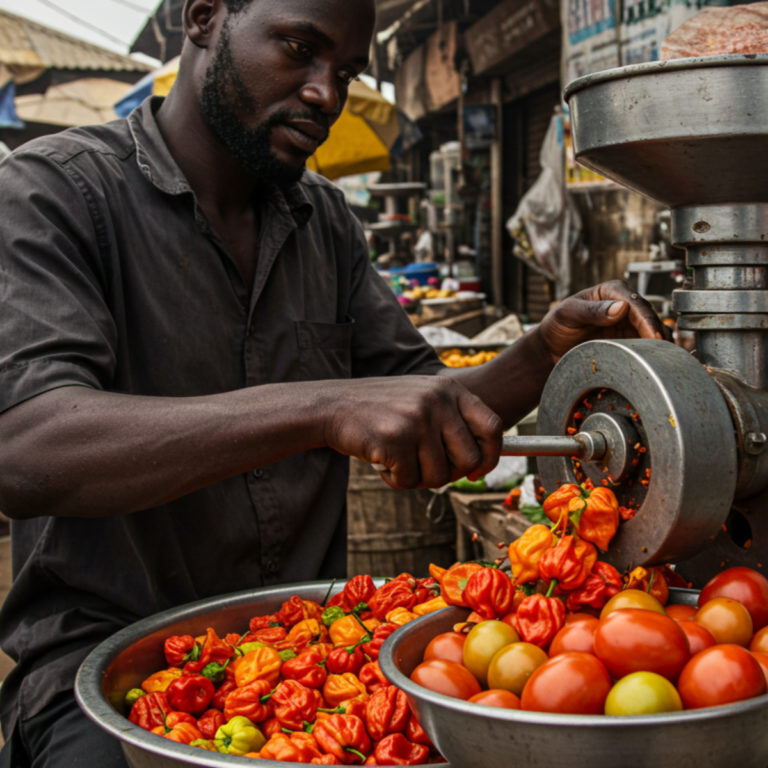Grief comes to us all in different ways.
For Damola*, his grief has deepened into an overwhelming feeling of guilt after visiting the cemetery one year after his mum’s death and being unable to locate her grave.

As Told To Adeyinka
In July 2022, I lost my mum a few weeks after her 55th birthday.
The entire experience still feels like a script from a Nollywood movie. She fell sick on a Monday, complaining of a fever and cold feet.
At first, we thought it was nothing serious—just the regular cold that’d require over-the-counter medication and some hot liquid. But by midnight that Monday, what started as a cold had also affected her breathing.
We went to a private hospital very early the next morning, and the doctor thought it was probably a severe case of cold. She got stronger doses of cold and catarrh medication, but she didn’t feel any better.
By evening, her younger sibling joined us in the hospital and insisted we take her to a specialist hospital in Ebute Metta. By then, her breathing had gotten really bad. At the specialist hospital, the doctors confirmed it wasn’t a cold, but pulmonary embolism.
My mum died in the early hours of Wednesday morning before the doctors could prep her for surgery.
The burial ceremony was a blur. I didn’t have the presence of mind to take note of my surroundings—not who was there with us or what the place looked like. I just knew we were at Atan cemetery in Yaba.
Reality only set in the next morning. I got a call from my aunty asking me to return to the cemetery and make plans to properly secure my mum’s gravesite.
The first question I blurted out was, “Where is her grave?”
The question threw my aunty off, and she went on a gentle rant about how she’d shown me markers the previous day. I wanted to argue, but I didn’t know if she’d understand if I told her I had little to no memory of everything that transpired at the cemetery.
After the call, I found my way to the cemetery in Yaba. Luckily, some guys remembered me from the previous day and offered to help me locate my mum’s grave. I thought it was kind of them until they started pitching their services, and I realised it was a business.
They suggested marble tiles, a gated fence, headstones, and other options to beautify the grave. We eventually went for a simple marble and headstone design.
I remember taking several pictures of my mum’s gravesite after the workers finished. I also recorded the surrounding graves and trees — everything I considered a landmark to help me remember.
After leaving the cemetery, I made a pact with myself to visit the grave as frequently as possible. I couldn’t shake the feeling that my mum was all alone in the ground, in the vast ocean of graves, and she’d need a companion, or at least an offspring, who remembered her every once in a while.
For reasons beyond me, I couldn’t keep that pact.
To start with, I was posted to Osogbo for NYSC three months after my mum died. There wasn’t enough time to visit the cemetery the few times I was in Lagos. Besides, after her death, I’d listened to Islamic lectures where I learnt it was wrong to idolise the grave of a loved one. Nothing else really counts as long as you remember to pray and seek forgiveness on their behalf.
So, every time I didn’t visit the grave, I took solace in the fact that I prayed for my mother. Yet, this hasn’t stopped me from feeling guilty.
I returned to Lagos earlier this year. Soon after, I started to have more frequent dreams about my mum. The dreams weren’t strange — they’d always happened — but the increased frequency this time worried me. So, one day, I called my spiritual guardian and told him what I’d been experiencing.
He asked when last I prayed or gave alms on my mum’s behalf, and I said I always prayed for her. He then suggested a bigger prayer session with family members on her behalf and said I should visit her grave.
I hadn’t been to the grave since early 2023, but I was convinced the pictures and videos on my phone would be helpful. I was so wrong.
The day I went to the cemetery, I didn’t see any familiar faces. The workers at the security post seemed completely different, and when they asked what I was there for, I told them I was visiting my mum’s grave. They asked if I knew where it was, and I said yes.
To be honest, I wasn’t quite sure that I did.
A lot seemed to have changed in the cemetery—the place had been overrun by grass and weeds. But I wasn’t willing to admit to strangers that I was unsure of where my mother’s grave was. The mere thought of that admission made me ashamed.
So, with the pictures on my phone, I tasked myself with finding the grave. At least 80 per cent of the landmarks were still in place; the real problem was finding the particular line where her grave was. I couldn’t find any graves I’d photographed on my phone. Most of the headstones read 2024, and it didn’t seem like there was any grave of anyone who died within the last three years in sight.
I went on and on with the search, tiptoeing around graves and being careful not to step on those that had weakened with time. Being alone in that ocean of graves snapped something within me; I stopped searching and broke down in tears.
When it became clear that I didn’t know where the grave was, I called my aunt and asked when she last visited. She said she visited the grave two weeks back when she accompanied a friend to bury her mum. She also seemed surprised that I was there and asked why I didn’t mention I was coming since we were both at the prayer session the day before. I ignored the question and said we could come together the next time she planned to visit.
I didn’t tell her I had no idea where the grave was. She’d have made a drama of it.
Now, I’m counting down to the day we’d go together. But I can’t help feeling bad. This feeling is worse because I haven’t dreamt of my mum in a while. I feel like she’s mad at me.
Read this next: I Lived Beside a Cemetery for 20 Years




